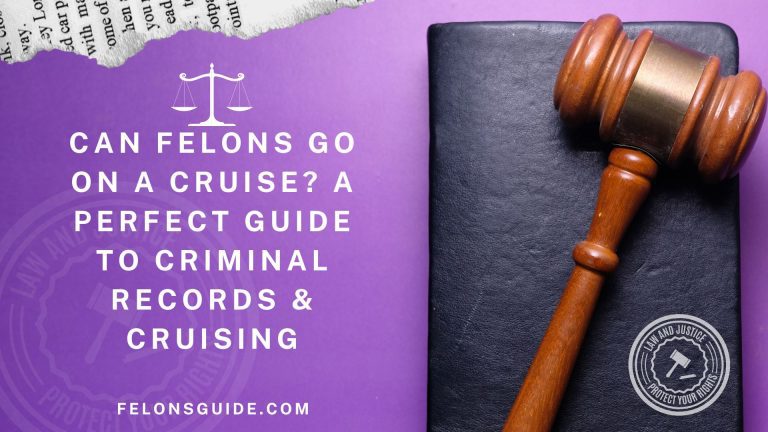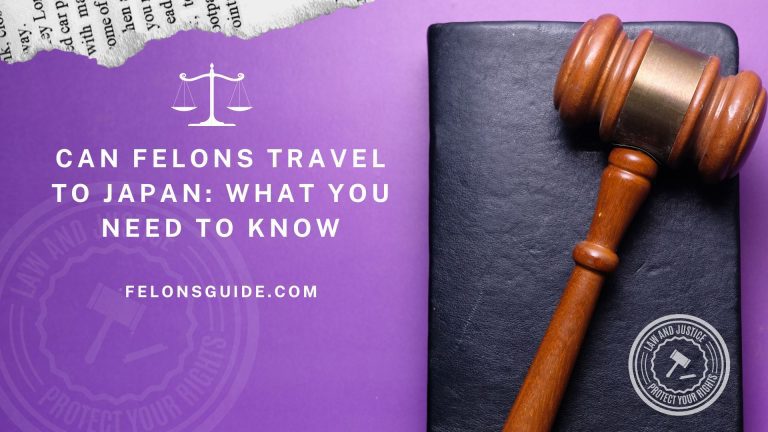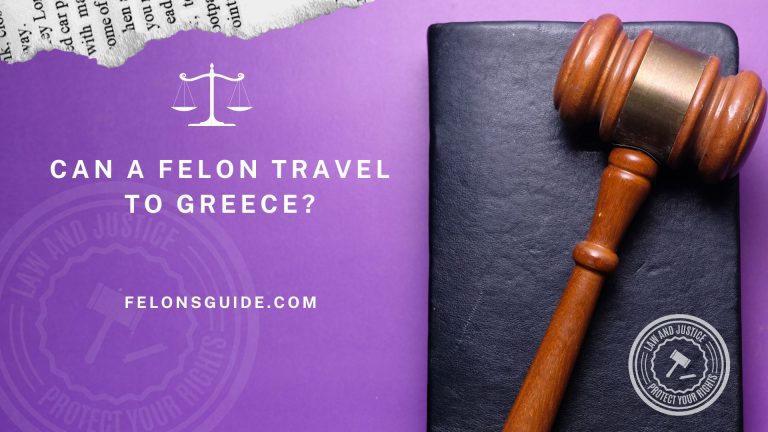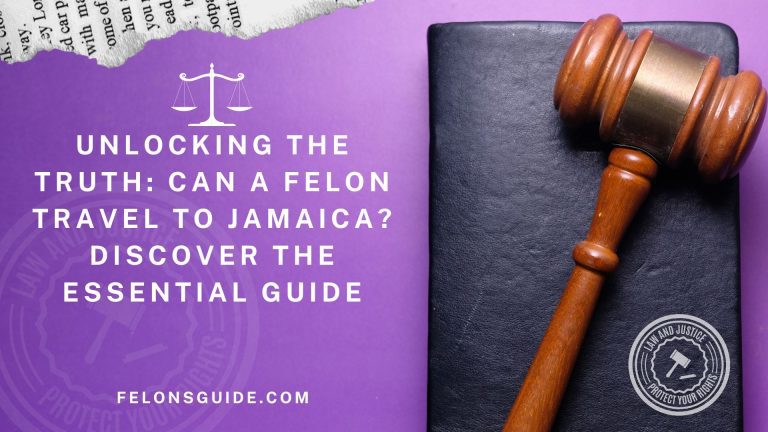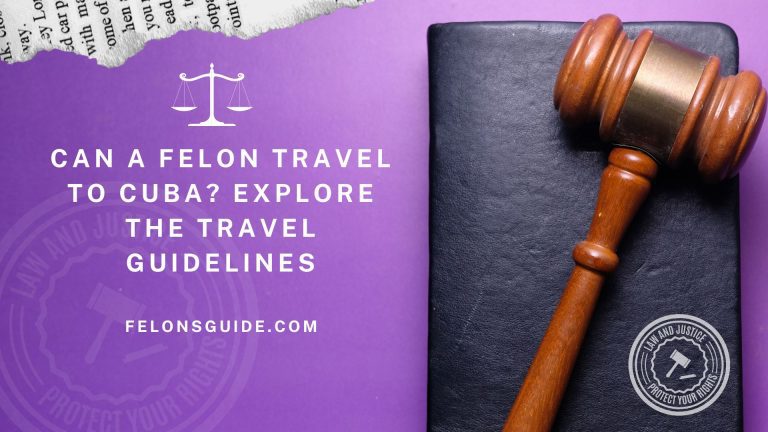Can a Felon Travel to Ireland? (Detail Guidelines)
Are you a convicted felon wondering if you can travel to Ireland? Traveling internationally with a criminal record can be a complex matter, with different countries having varying policies and restrictions. In this article, we will explore the topic of whether a felon can travel to Ireland, including the entry requirements, visa application process, factors that may affect approval, and practical advice for traveling with a criminal record.
Can a Felon Travel to Ireland? (Detail Guidelines)
Traveling abroad can be an exciting experience, offering opportunities for personal growth, cultural enrichment, and new perspectives. However, for individuals with a criminal record, there may be additional considerations and restrictions when it comes to international travel. Let’s delve into the specifics of traveling to Ireland as a felon.
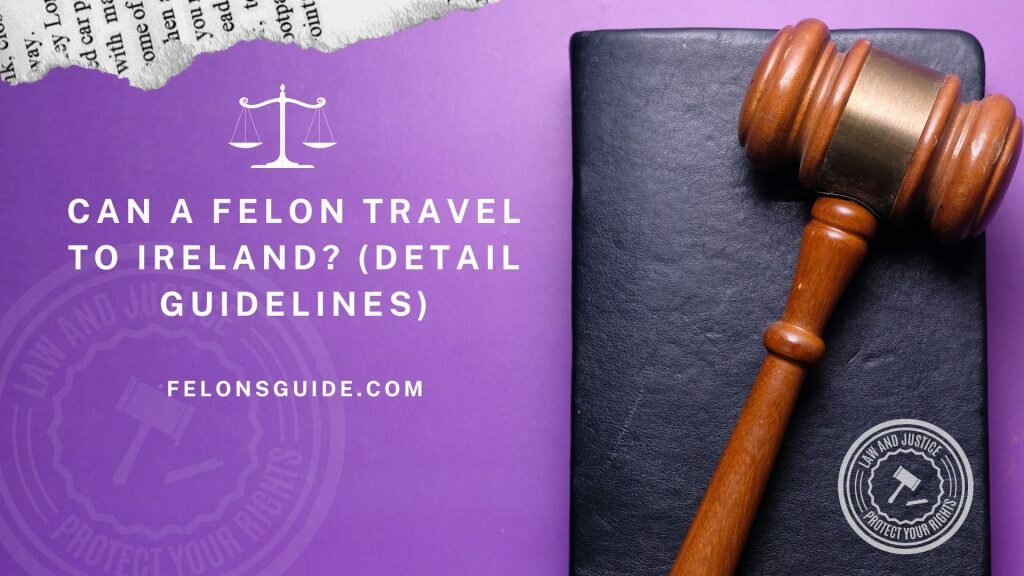
Understanding Felonies
Before we explore the travel implications, it’s important to understand what a felony entails. A felony is a serious criminal offense that typically carries a more severe punishment than a misdemeanor. Examples of felonies include but are not limited to murder, rape, robbery, drug trafficking, and certain white-collar crimes. The specific laws and definitions may vary between jurisdictions.
Also Read: Can a Felon Travel To Cuba? Explore the Travel Guidelines
Travel Restrictions for Felons
Travel restrictions for felons are typically put in place to protect the safety and security of a country. Many countries have laws and regulations that may prevent individuals with certain criminal records from entering their borders. These restrictions aim to safeguard their citizens and maintain the integrity of their legal systems.
Visiting Ireland as a Felon
If you are a felon considering a trip to Ireland, it’s essential to familiarize yourself with the entry requirements for the country. As of the time of writing, Ireland does not have specific laws that prohibit felons from entering the country solely based on their criminal history. However, each visa application is assessed on a case-by-case basis, taking various factors into account.
Entry Requirements for Ireland
To enter Ireland, most individuals, including those from the United States, are required to have a valid passport. Depending on your nationality, you may be eligible for visa-free travel for a limited period, typically up to 90 days. However, if you plan to stay longer or engage in specific activities, such as work or study, you will likely need to apply for a visa.
The Visa Application Process
If you are a felon planning to visit Ireland for an extended period or for specific purposes, it is crucial to understand the visa application process. The process involves submitting an application to the Irish Embassy or Consulate in your country of residence. The application typically requires various supporting documents, such as a valid passport, proof of accommodation, financial statements, and a detailed itinerary.
Factors That May Affect Approval
When assessing a visa application from a felon, Irish authorities may consider several factors to determine whether approval should be granted. These factors can include the nature and severity of the offense, the time elapsed since the conviction, evidence of rehabilitation, character references, employment or educational opportunities in Ireland, and ties to the home country.
Rehabilitation and Character References
Demonstrating rehabilitation and good character is essential when applying for a visa as a felon. It is advisable to obtain character references from credible individuals, such as employers, community leaders, or professionals who can vouch for your positive personal growth and contributions to society since your conviction. These references can help support your case and present a more comprehensive picture of your current circumstances.
Legal Assistance and Counseling
Navigating the visa application process as a felon can be overwhelming. Seeking legal assistance from an immigration lawyer experienced in handling cases involving criminal records can be beneficial. They can provide guidance on the necessary documentation, advise on how to present your case effectively, and increase the likelihood of a successful application.
Traveling with a Criminal Record
While traveling to Ireland as a felon is possible, it is crucial to approach the situation with honesty and transparency. Many countries, including Ireland, require individuals to disclose their criminal records during the visa application process. Failing to provide accurate information or attempting to hide your criminal history can have serious consequences, including visa denial, deportation, and legal penalties.
Disclosure and Honesty
When completing your visa application or going through customs, it is vital to disclose your criminal record truthfully. It is better to address the matter proactively rather than risk being caught later, as this can result in severe repercussions. Providing honest information demonstrates your willingness to abide by the law and can contribute to a more favorable assessment of your application.
Preparation and Documentation
To increase your chances of a successful trip to Ireland, thorough preparation is key. Gather all the required documents, such as your passport, visa application, character references, and any supporting evidence of your rehabilitation. Make sure you have a clear and detailed itinerary, including information about your accommodation, transportation, and planned activities.
Behavior and Conduct in Ireland
Once you arrive in Ireland, it is essential to conduct yourself appropriately and abide by the country’s laws and regulations. Behaving responsibly and respectfully towards the local culture and customs can help ensure a positive experience. Engaging in any criminal activities during your stay can have severe consequences and further complicate your legal situation.
Resources for Felons Traveling Abroad
If you are a felon planning to travel internationally, several resources can provide further information and assistance. Non-profit organizations, legal aid societies, and online forums dedicated to supporting individuals with criminal records can offer guidance and advice specific to your situation. It is worth researching and reaching out to these resources to gain valuable insights and support.
Conclusion
While traveling to Ireland as a felon may present some challenges, it is not an impossibility. By understanding the entry requirements, preparing thoroughly, and presenting your case effectively, you can increase your chances of obtaining a visa. Remember to be honest and transparent throughout the process and conduct yourself responsibly during your visit. Traveling can offer opportunities for personal growth and new experiences, and with careful planning, felons can embark on journeys abroad.
